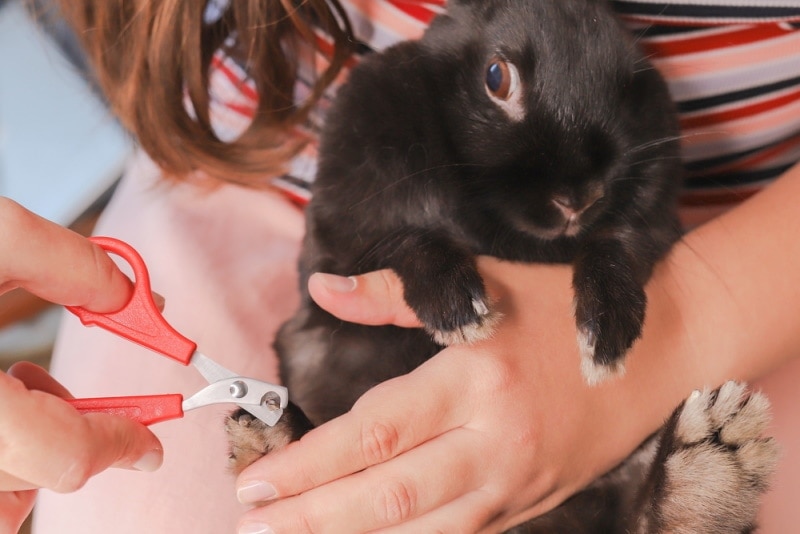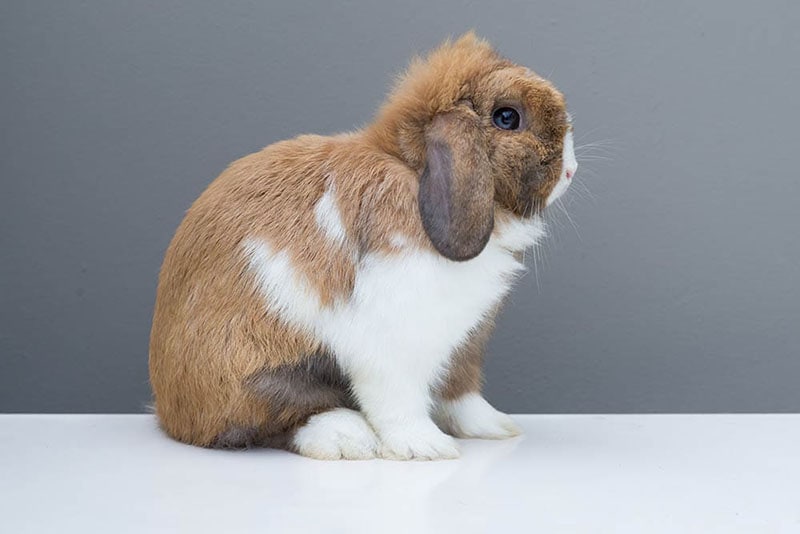Can Rabbits Have Catnip? Vet-Approved Facts & FAQ
Updated on
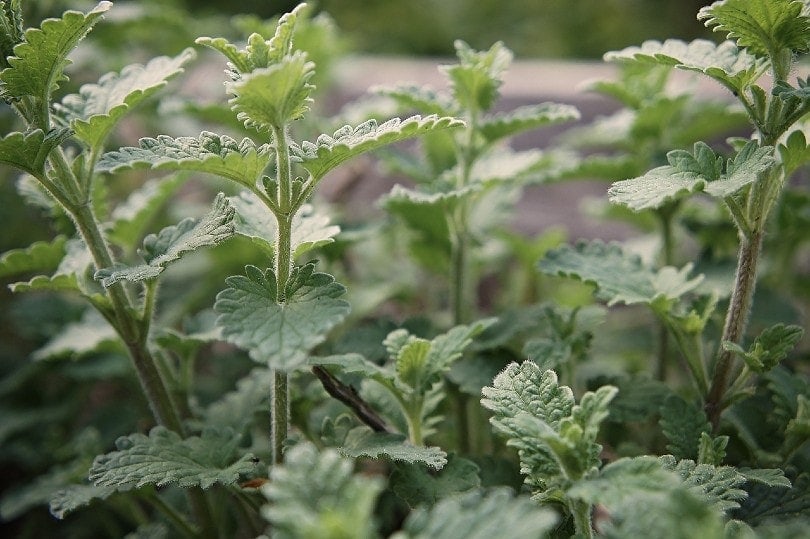
Pets consist of so much more than simply cats and dogs. While man’s best friend and their supposed arch nemesis are the most popular pets to have at home, other animals can just as easily steal our hearts and find their way into our lives.
Rabbits are another animal that is growing in popularity as pets. Yes, bunnies are cute and fluffy. Why wouldn’t someone want to cuddle and care for one? Of course, for those who make rabbits a pet, it’s important to know what’s safe for them to eat.
This leads us to the question of whether rabbits can have catnip. We all know the love cats have for this herb, so it only makes sense to wonder if other animals can have it as well. Luckily, the answer to that question is yes, rabbits can have catnip. However, too much may cause them a bit of gastrointestinal upset. For this reason, it’s best to limit how much catnip your bunny has. Let’s dive deeper into the relationship between your bunny and catnip so you can learn more about this herb and decide if it should be part of your bunny’s diet.
You Might Also Be Interested In:
What Is Catnip?
Before we can discuss giving catnip to your bunny, it’s important to know a bit about this herb that is known for driving cats crazy. Catnip is part of the Mint family. This perennial herb has more than 250 varieties in existence. Common catnip (Nepeta cataria) is the variety that is known for driving kitties out of their minds. It’s also one of the most common varieties found along with Catmint (Nepeta mussinii). Catnip has several aromatic oils inside giving it a minty smell but the active ingredient that seems to attract cats and even rabbits to a lesser extent is nepetalactone.
Catnip blossoms its active ingredients during the spring and early fall of the year. The herb itself reaches 50–100 cm in height and width. It has gray and green leaves that are heart-shaped with fuzzy hair along the stem. While this plant is commonly used to entice cats to behave, use the scratching post, or even use a bed it can also be used to reward rabbits for good training as well.
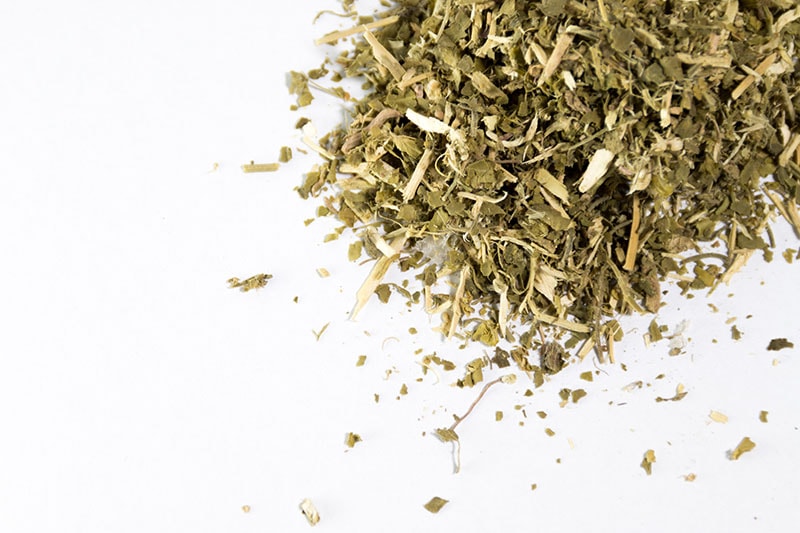
Rabbits and Catnip
The first thing you should understand about rabbits and catnip is that this herb is not toxic to rabbits and is considered safe to eat. Fresh catnip is, of course, the best option for your bunny. However, although the leaves and stems of the catnip plant are safe for your rabbit, the seed head is not. Make sure this is removed before offering it to your bunny. Now, don’t expect your rabbit to go insane when it eats catnip like cats do. For rabbits, catnip is often used for training or to help them calm down and relax.
You could be tempted to give your rabbit dried catnip as you do with cats. Unfortunately, this isn’t a great idea for your bunny. The dried catnip is very small. This could present a choking hazard for your bunny or even damage the skin inside its mouth which is very soft and delicate. You’ll find that some bunnies will like the catnip, while others avoid it due to the strong scent.
How Much Catnip Can a Rabbit Eat?
Rabbits should not eat catnip until they are at least 12 weeks of age. This is due to younger bunnies having a more sensitive gastrointestinal tract. Once your bunny is old enough, it’s safe to offer it 5 or 6 catnip leaves at a time. You should only provide catnip once or twice per week. It shouldn’t be an everyday treat or replacement for your bunny’s hay. When you first introduce catnip, however, start slowly with small amounts. This will give your rabbit a chance to determine whether it enjoys catnip and get its body used to the new herb.
Do Rabbits Like Catnip?
Here’s where things get a bit tricky. Like with other animals, every rabbit is different. Some rabbits may love catnip and appreciate having it added to their diet weekly as a treat, training tool, or calming herb. However, catnip does have a strong scent. This aroma is designed to keep grazing animals from eating it in the wild. This aroma may not bother every rabbit, but some will not like it. If your rabbit dislikes the aroma, don’t try to force your bunny to eat catnip. Instead, use other herbs and veggies as treats to keep their diets balanced.
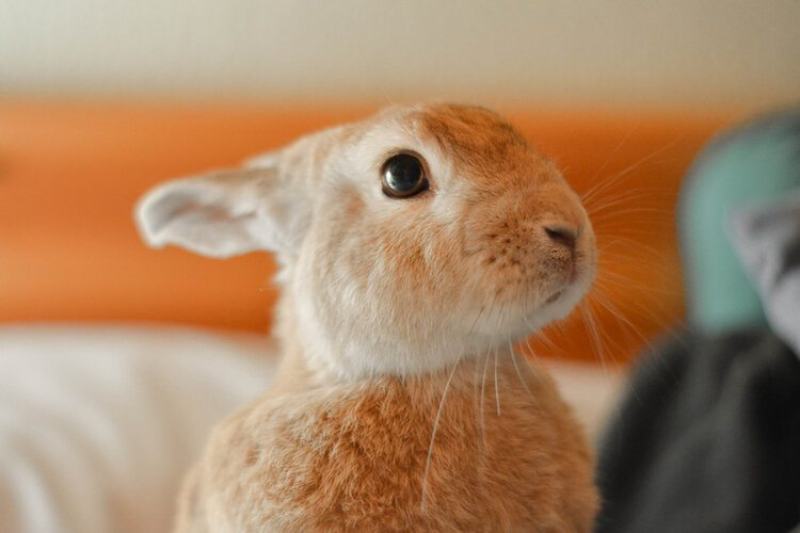
What About Catnip Toys?
Again, when it comes to catnip toys, things can get complicated. If your bunny likes catnip, and you want to provide them with a few toys to keep them active, we understand. However, there are a few toys out there that could be dangerous to them. As we mentioned, dried catnip can be harmful to your rabbit’s mouth and can cause a choking hazard. The same is true when it comes to some of the toys on the market. If the toy has dried catnip simply falling out of it, it’s most likely not the right choice. You need to also be extremely careful when it comes to the other toy materials. The last thing you want to do is give your bunny a catnip toy that could fall apart easily and be ingested. This could lead to blockages and other major issues for your rabbit.
Your Bunny’s Normal Diet
Now that we’ve covered catnip and its safety for your rabbit, let’s take a look at normal dietary requirements so you keep your pet healthy. The most important part of your bunny’s diet is hay, which makes up 80–90% of its diet. Fresh hay should always be available to your bunny. This hay should be grass hay. Timothy, orchard grass, oat, and brome hay are the best choices.
Other than hay, you’ll also want to provide your rabbit with pellets, fruits, vegetables, and herbs. Small amounts of pellets can be given to your bunny daily. You’ll also find that most veggies can be offered daily or weekly. Fruits, however, should only be given to your bunny once or twice a week to help keep everything balanced.
Foods Your Rabbit Cannot Eat
Yes, there are foods, even veggies, out there that your bunny should not have. Take a look at these below so you avoid adding these foods to your rabbit’s diet and causing distress.
- All human treats and sweet snacks
- Beans
- Beet greens
- Cabbage
- Cauliflower
- Cereal
- Chocolate
- Corn or corn-on-the-cob treats
- Crackers
- Iceberg lettuce
- Legumes
- Mustard greens
- Nuts
- Pasta
- Peas
- Potatoes
- Rhubarb
- Seeds
- Sugar
- Turnip greens
- Yogurt

Final Thoughts
If you want to give your rabbit a bit of catnip, no worries, it’s completely safe. This herb is not toxic to bunnies. Keep in mind, catnip shouldn’t be given to your rabbit more than once or twice per week. If your bunny is under 12 weeks old, avoid trying catnip until they are older. Fresh catnip that is pesticide-free is the best to give your bunny. Rabbits that enjoy this herb may feel a bit relaxed after enjoying it. Not every rabbit will like catnip, however. Never force your rabbit to eat something it doesn’t want.
Featured Image Credit: lwccts, Pixabay



